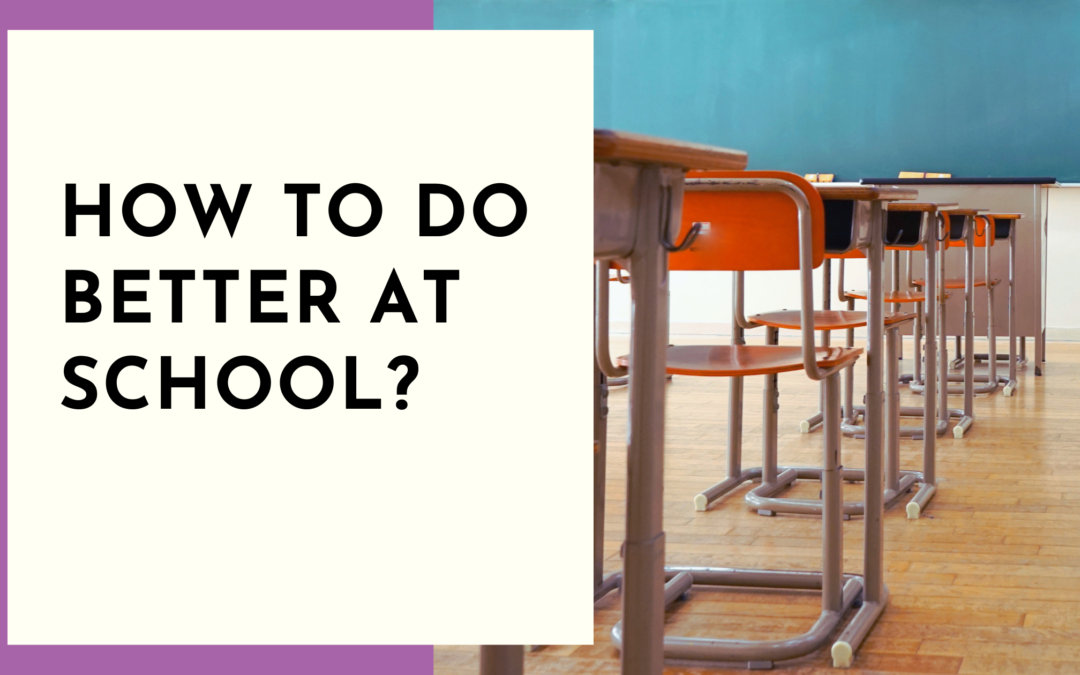I dedicate my life to helping pupils succeed. Grownups often tell a child who has difficulties in school, “you can do better,” but forget to mention how to do better in school. It is easy to spot problems, and it is even easier to tell somebody to improve. But when was the last time it helped you learn when somebody said that you could do better?
Any pupil that experiences difficulties in school go through moments where all their brain can say is, “I cannot sit here any longer. I cannot understand anything”. I surely had moments like this when I was a pupil. Many know the frustration when they feel that their brain shuts off and they fail. And then the teacher tells them that they can do better in school if they only try. A pupil’s way to success is learning how to learn and helping themselves during those moments of frustration.
To understand how a studet learns
It is difficult to learn when, emotionally, the student is in the space of feeling a failure in front of friends and themselves. How often do we as teachers look at how a student isreally feeling? How often do we try and understand how they learn?
Uri has been my student for some months. When he came in last week, he looked very joyful and full of energy.
“Did you have a good day at school?” I asked
He blushed, “I ran away from most of the lessons,” he said while looking to the floor. “I went outside to play basketball.”
“And the teachers didn’t notice?”
“They did and punished me for it with eight pages of homework. But I wanted to come here with a clear head, and I get angry and come here frustrated if I sit in the classroom all morning.”
Uri is a bright student, and I am always excited to see and explore learning together with him. He gets so disheartened and angry at school. How come he developed his learning at such a speed with me while he seemed to fail constantly in the classroom. His parents told me that his teachers are full of motivation and want to help. They often say this famous sentence to him that he can do better if he tries harder.
BEING FLEXIBLE WITH TEACHING MATERIAL
We started the lesson with some physical exercise, as we both knew that it helps him concentrate better after these activities. I then proudly showed him what I had prepared for him. He had told me the week before that he didn’t understand geometry, so I had decided I would prepare material explaining what it was all about. I spent two hours reminding my brain what geometry was and how I would have wanted it explained to me as a pupil. Sitting in front of me, I started to explain all that I had learned. He looked at me with empty eyes. And I wanted to cry for the time I wasted preparing. Suddenly I had an idea, and I could see how, what I prepared should be used differently, in a way that would be suitable for him.
“I will give you a new notebook, and will read and explain the first sentence. Then you can write it for yourself in your own way.” I said. I knew that he loved teaching others, and when he explained things that mattered to him, he was clear and accurate. I started with the first sentence and asked him to explain it back to me. He did and we continued in this fashion. It was fun. It was almost the same, but it was his. He wrote how he understood, and it was his creation! After doing this for one page, I asked him to close the notebook and explain what he had written. He remembered it all.
He understood it so quickly, and he even could show me and explain to me some parts that were not clear to me but very understandable for himself. The difference was shown not only in his ability to learn but also in his body posture and his eyes that showed success.
Listen carefully to what the pupil needs
In earlier times as a teacher, I might have insisted on teaching my pupils according to what I thought was best for them, especially when I already invested so much in preparing the lesson. But now I know better, and it is about listening carefully to what the pupil needs rather than what I prepared. I know today that I teach pupils not only to read or do maths but also to learn how they face challenges and find their own personal way to overcome any difficulties if they know to listen to themselves.
The question of how to do better in school is one with many answers. Each student is unique and therefore requires something else. It might be that an hour of basketball is a much better way for Uri to prepare for class than sitting quietly. That Uri has to explain things in his own words, and only then can he understand. Maybe his best way to learn is when he needs to teach somebody else. When we listen to the pupil, we can hear what they need in order to learn. From that moment on, it is not about how to do better in school, but the process itself of learning becomes interesting, and the student starts to achieve better marks in school.
Don’t tell me I should do better. Show me how
When I reflect on my time in school as a pupil, I remember teachers often telling me that I should do better. However, nobody showed me how. I studied in a school in South Africa when not much was expected of me being a girl. The boys in the class were envisioned to become doctors, lawyers, professors, etc. I was sent to learn bookkeeping – something I had no passion for. I failed with any exam they gave me. There are very clear memories of words in my brain from my school days. “You can do better! Why don’t you try harder! If you continue like this, there is no chance of you succeeding.
I know now that my teachers didn’t’ listen to me, and instead, they forced me to learn what I didn’t want. Not only that, they pushed me to succeed while not offering any way to do so. Today, each time I prepare a lesson for one of my pupils, I smile to myself. Suddenly things I failed at in school become so easy as I learn in my own way and the sky is the limit when I trust myself in my own path.
Each child and person has a different motivation for learning, and they learn differently. If we, grownups, would listen to the child that seeks our help and support them in discovering their way of learning, I am sure that we would be better teachers and better companions. I am sure that children would find that they can do better at school with way less frustration.
What was your way of learning when something was challenging? Which teacher do you remember from school and for what reasons?




